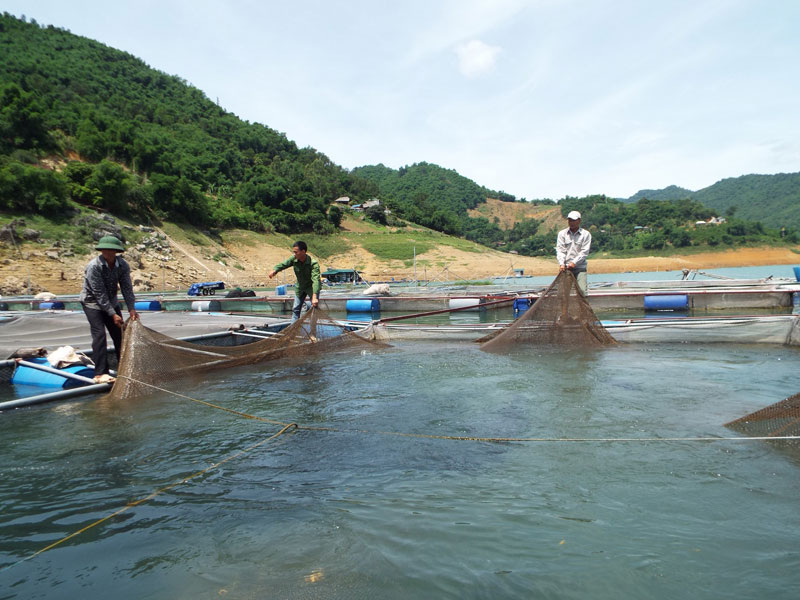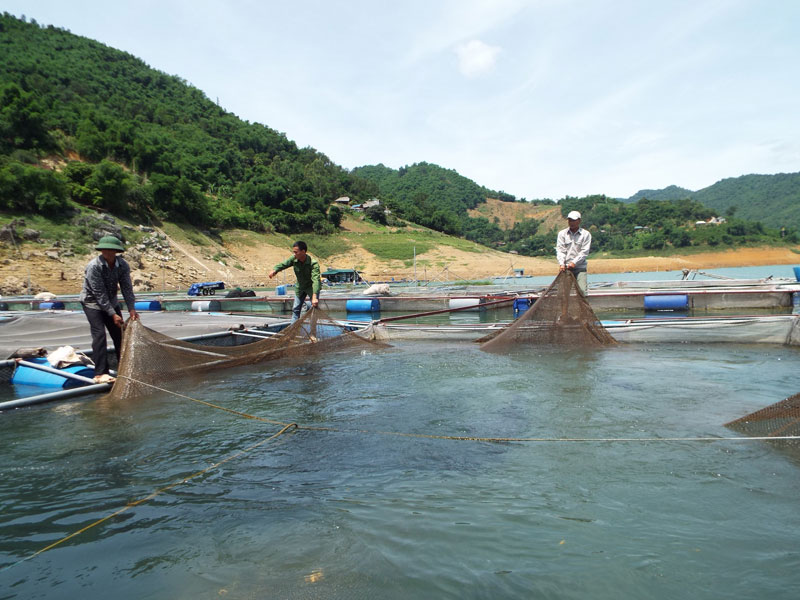



Thai Thinh commune (Hoa Binh City) has to date invested in
390 fish cages, contributing to raising income for many households..
Nguyen The Luc, Vice Chairman of the
Thai Thinh People’s Committee, said: "In recent years, thanks to the investment
of the Party and Government in the local infrastructure and production
improvement, the commune’s Party Committee and People’s Committee have focused
on directing residents to make good use of natural resources, change the
structure of cultivated crops and farmed animals while actively applying
advanced farming techniques.”
In 2016, local farmers grew corn,
cassava plants, sugar cane, lemongrass, beans and vegetables on nearly
In addition to cultivation, animal husbandry was developed for commercial purposes, with 645 pigs, 142 goats, and 5,554 fowls.
Thanks to funding for poverty and hunger alleviation from the municipal Red Cross, poor households were provided with capital to raise cows. In 2015, two households were given a cow each, and three more received cows in 2016. To date, the entire commune has 151 cows and buffalos in total.
Particularly, in recent years, apart from fishing in the wild, raising fish in cages has brought local farmers good profits. The commune now has 390 fish cages. Besides the familiar fish varieties such as climbing perch, grass carps, black carp, and hemibagrus, a new kind of fish has been introduced to the locality this year, which is sturgeon.
With assistance from the local fishery office, a sturgeon farming model has been piloted in Tran Thi Phuong’s farm in Tieu Khu hamlet, promising high chance of future success.
In 2016, the commune reeled in 900 million VND from the fishery business; the figure is expected to hit over 1 billion VND this year.
Forestry development is another source of income for the locals. The authorities have assigned forest areas for residents to take care of, thus increasing their sense of responsibility about forest protection. The individuals and households have planted different bamboo types and harvest bamboo shoots for sale as a means of livelihood.
To support local farmers in rising out of poverty, the Hoa Binh city branch of the Vietnam Bank for Social Policies has facilitated access to preferential loans for poor and near poor households. Each household can borrow an average 30 million VND to invest in cultivation or animal husbandry. Overall, most of the beneficiaries were said to make good use of the loans.
Trade and services are also considered a local strength as the commune houses the Bich Ha port. Total revenue from trade and services amounted to 55 billion VND last year.
Thanks to the effectively use of local strengths, the local economy has developed continuously, resulting in improved living standards of its residents. In 2016, the commune’s income per capita surpassed 34 million VND and the number of poor households reduced to only 17 families. The commune has set the target of raising per capital income to 36 million VND and helped two more households escape poverty in 2017.
Linh Trang